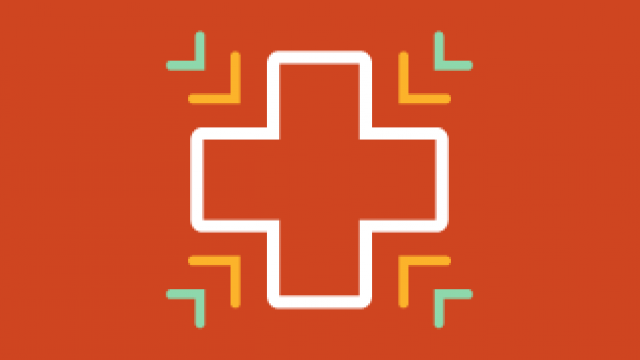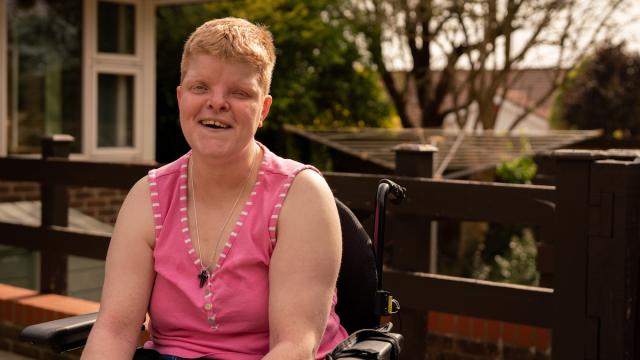
How to live well: Your health
Our health is something we often take for granted until we are in pain or something isn’t feeling as it normally does, but having good health is essential for us to be able to live well. You have probably heard the saying “health is wealth” before, because our health is our most valuable asset. When we have health issues, it can restrict our ability to do day-to-day activities, cause problems with relationships, create money worries, stop you from working and even directly affect our ability to cope with stress.
How can we live a healthy and happy life?
Nutrition
It is important to eat a healthy, varied and balanced diet that is full of nutrients and minerals. Having a good diet helps to protect your body against disease (such as diabetes, heart disease and cancer), ensures your organs do their job and even helps you feel happy.
What does a healthy, varied and balanced diet mean? Your diet should include a variety of foods including at least five portions of fruit or vegetables a day, plus protein, carbohydrates, dairy (or dairy alternatives), and healthy fats like avocado or olive oil. A variety of foods will ensure that you get a good range of vitamins and minerals. You can also take supplements to increase your vitamin and mineral intake - speak to your doctor about which supplements would most benefit you.
For each meal, you should aim to include a balance of carbohydrates, protein and vegetables. If you can, choose wholegrains over refined carbohydrates, and eat foods that are high in fat, salt and sugar in moderation.
One important element that you should pay attention to is dietary fibre. Fibre comes from plant-based carbohydrates and they are not digested as early in your digestive system as other carbs. By eating a diet rich in fibre, we can keep our digestive system working well and allow waste to move through our body more quickly and efficiently.
Dietary fibre can also reduce your risk of type 2 diabetes, cardiovascular disease (heart disease and stroke), and bowel cancer. But what can you do to increase your daily intake of dietary fibre? Focus on including fibre rich foods such as wholegrain breads, pastas, and cereals, fruits and vegetables, beans and pulses, nuts and seeds, and potatoes with the skin on.
Everyone is different and whilst our advice on nutrition is helpful for most people, if you have a specific condition or illness, you should always check with a doctor about what’s best for you.
Hydration
Did you know that two thirds of your body is water? So, hydration is essential to ensure every part of our body keeps working. Water has many jobs in the human body, including:
- Keeping your heart beat and blood pressure stable
- Moving nutrients and oxygen around the body
- Changing the body’s temperature
- Flushing out bacteria
- Protecting organs and tissues
- Balancing your electrolytes (minerals in your body that are essential for a lot of important bodily functions)
Dehydration is a common problem, as many of us don’t drink enough each day. To keep your body well hydrated it’s important to drink regularly throughout the day. The NHS recommends a minimum of 6-8 glasses per day. This can include water, diluted squash and even fruit juice.
The risk of dehydration increases if you are active, the weather is hot or if you are in one of the at-risk groups:
- babies and infants – they have a low body weight and are sensitive to even small amounts of fluid loss.
- older people – they may be less aware that they are becoming dehydrated and need to keep drinking fluids.
- people with a long-term health condition – like diabetes or alcoholism.
- athletes – they can lose a large amount of body fluid through sweat when exercising for a long time.
If you’re not sure, you can check the colour of your urine using this chart for further guidance.
Sleep
We need sleep and rest so that our body can heal, repair and recharge. Without sleep, our brains can’t function properly and this can lead to not being able to focus, think clearly or remember things. As we mentioned earlier, stress can be damaging for our health. But sleep is a good way to relieve stress.
How much sleep do we need?
- Adults need an average of 7 - 9 hours sleep.
- Children, teenagers and people with chronic health conditions need more than that.
You might think that sleep is the only type of rest that you need, but in fact sleep and rest are not the same. Rest comes in several different forms, including physical rest, mental rest and sensory rest. We can often feel that we are ‘wasting time’ by resting, but making a choice to rest in any form is important. Find out more about the different types of rest here.
Exercise
Getting enough exercise is essential to good health, as it can reduce your risk of illnesses. Not only that, exercise can boost your mood and improve your quality of sleep too!
The NHS recommends that adults should “try to be active every day and aim to achieve at least 150 minutes of physical activity over a week through a variety of activities.” You can increase your daily activity by choosing to walk instead of getting the bus or using your car, or doing activities like gardening or cleaning.
When it comes to exercise, you should think about incorporating these four areas:
- Aerobic activity (when you feel your heart rate rise and you’re out of breath)
- Strength
- Flexibility
- Balance
Aerobic exercise
Aerobic exercise is important for keeping our heart healthy, as well as keeping our blood pressure low and controlling blood sugar levels. Types of aerobic activity include walking, jogging, cycling, swimming, skipping, using a cross trainer, dancing and kickboxing.
Strength
Strength training is important so that your muscles can support your mobility and your balance. If you include strength or resistance training into your routine, you will be stronger and fitter overall, as it protects both your bone and muscle mass. Types of strength exercises include lifting weights, using resistance bands, bodyweight exercises (like planks), climbing stairs and hill walking.
Flexibility
Flexibility is important to lengthen our muscles - shorter muscles makes us more likely to get injuries and chronic back pain. Our muscles naturally get shorter and weaker with age, so focusing on flexibility will keep your body healthier and more mobile for longer. Types of flexibility exercises include stretching, yoga, pilates and dance.
Balance
Balance is a key skill that prevents us from having falls, injuries and allows us to control the movement of our body. It is especially important to maintain our ability to balance as we age, as many older people will be seriously injured by falls. Types of balance exercises include yoga, using a balance board, tai chi, and general balance routines such as standing and sitting from a chair without using your hands.
Self care
You may have heard the term ‘self care’ more frequently in recent years. To us, self care means taking time for yourself, treating yourself with kindness and filling your life with nourishing activities that benefit your mind and your body. One key aspect of self care is stress relief, and as we know, stress can cause all sorts of health issues.
There is no ‘right’ way to do self care, so a good approach is to do one thing every day that is just for you and your wellbeing. Here are some ideas that you could try:
- Spend time in nature or in green space.
- Breathing exercises.
- Use aromatherapy oils that you enjoy - you can even incorporate these into a relaxing bath.
- Laugh! Watch a video that makes you laugh or spend time with people who share your sense of humour.
- Practice mindfulness or meditate.
- Listen or dance to music you enjoy.
- Practice gratitude every day - think about one or two things that you are grateful for before you go to sleep.
It is important to remember that you don’t always have to do the “right” thing when it comes to your health, sometimes we want to spend an evening on the sofa and eat ice cream and that is completely fine. All of these elements that make up our health can be overwhelming so if you wanted to introduce more healthy habits, you could start small with one or two changes and build from there. Most importantly, every person is different and has individual needs, so please do keep this in mind when you are planning your activities.



